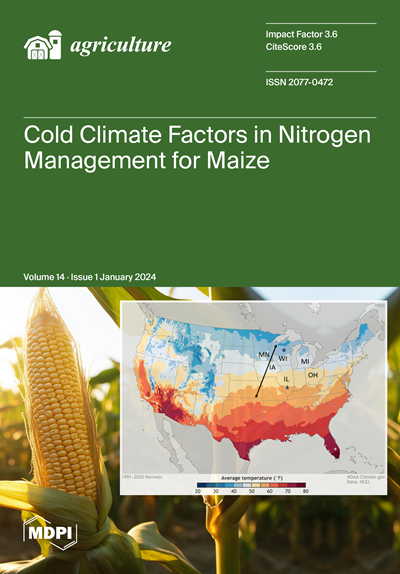农户生计资本对创业行为的影响机制:来自CFPS的证据
IF 3.6
2区 农林科学
Q1 AGRONOMY
引用次数: 0
摘要
农户生计资本是农户选择生计策略的重要依据。本文利用2018年CFPS中的农户数据,构建了生计资本分析的“六边形”框架。采用熵权法对自然资本、物质资本、金融资本、社会资本、人力资本、心理资本和总生计资本进行测度。本文运用logit和tobit模型分析了生计资本对农户创业的影响。最后,从户主性别、家庭受教育程度和地区差异的角度探讨了生计资本对农户创业行为的异质性影响。结果表明,农户生计资金在各维度上的分配不均衡,且差异较大。农户生计资本和金融对农户创业行为有正向影响。异质性分析表明,生计资本的增加对女性户主家庭创业的影响更为积极显著。生计资本对低教育程度农户的创业行为有显著的促进作用。生计资本对农户创业的影响呈现由东到中再到西递减的分布格局。稳健性检验结果表明,生计资本对农户创业产生正向影响的结论是可靠的。主要结论为进一步优化农村家庭创业政策,促进农村家庭创业提供了指导和基础。本文章由计算机程序翻译,如有差异,请以英文原文为准。
Influencing Mechanism of Rural Households’ Livelihood Capital on Entrepreneurial Behavior: Evidence from the CFPS
The livelihood capital of rural households is an essential basis for their selection of livelihood strategy. This paper uses rural household data from the 2018 CFPS to construct a “hexagonal” framework for the analysis of livelihood capital. Natural capital, material capital, financial capital, social capital, human capital, psychological capital, and total livelihood capital are measured using entropy weight method. The paper uses logit and tobit models to analyze how livelihood capital affects rural households’ entrepreneurship. Finally, the heterogeneous impact of livelihood capital on rural households’ entrepreneurial behavior is discussed from the view of household head gender, household education level, and regional differences. The results show that rural households’ livelihood capital distribution in each dimension is uneven and the difference is great. Rural households’ capital of livelihood and finance have positive effects on their entrepreneurial behavior. Heterogeneity analysis shows that the increase in livelihood capital impacts entrepreneurship in female-headed households more positively and significantly. Livelihood capital can significantly promote the entrepreneurial behavior of rural households with lower education levels. The impact of livelihood capital on rural household entrepreneurship presents a decreasing distribution pattern from east to the middle to west. The results of the robustness test show that the conclusion of the positive impact of livelihood capital on rural household entrepreneurship is reliable. The main conclusions provide guidance and a foundation for further optimizing rural household entrepreneurship policies and promoting rural household entrepreneurship.
求助全文
通过发布文献求助,成功后即可免费获取论文全文。
去求助
来源期刊

Agriculture-Basel
Agricultural and Biological Sciences-Food Science
CiteScore
4.90
自引率
13.90%
发文量
1793
审稿时长
11 weeks
期刊介绍:
Agriculture (ISSN 2077-0472) is an international and cross-disciplinary scholarly and scientific open access journal on the science of cultivating the soil, growing, harvesting crops, and raising livestock. We will aim to look at production, processing, marketing and use of foods, fibers, plants and animals. The journal Agriculturewill publish reviews, regular research papers, communications and short notes, and there is no restriction on the length of the papers. Our aim is to encourage scientists to publish their experimental and theoretical research in as much detail as possible. Full experimental and/or methodical details must be provided for research articles.
 求助内容:
求助内容: 应助结果提醒方式:
应助结果提醒方式:


